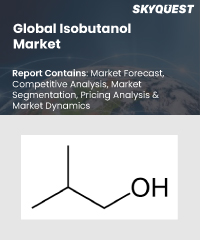
Product ID: SQMIG15B2108

Report ID:
SQMIG15B2108 |
Region:
Global |
Published Date: February, 2024
Pages:
157
|
Tables:
63 |
Figures:
75
Our industry expert will work with you to provide you with customized data in a short amount of time.
REQUEST FREE CUSTOMIZATIONWant to customize this report? This report can be personalized according to your needs. Our analysts and industry experts will work directly with you to understand your requirements and provide you with customized data in a short amount of time. We offer $1000 worth of FREE customization at the time of purchase.

Product ID: SQMIG15B2108